The Notre Dame Cathedral of Saigon, located in the busy metropolis of Ho Chi Minh, is a testament to the country’s rich history and culture. It also has many delicate decorations, such as stained glass windows and religious figurines adorning the interior.
A visit to the Notre Dame Cathedral in Saigon offers a once-in-a-lifetime opportunity to observe the mix of French and Vietnamese architecture while also soaking in the tranquil ambiance of this holy monument.
Whether you’re a devout Catholic or simply a fan of beautiful design, this cathedral will take your breath away. Join us as we explore further into the history and beauty of Saigon’s Notre Dame Cathedral, and learn why it is regarded as one of the city’s must-see sights.
Contents
Exploring the Significance of the Notre Dame Cathedral of Saigon
The Notre Dame Cathedral in Saigon is a symbol of Vietnam and France’s long cultural and historical relations. The cathedral, which was built during the French colonial era in the late nineteenth century, is one of Ho Chi Minh City’s most recognizable structures.
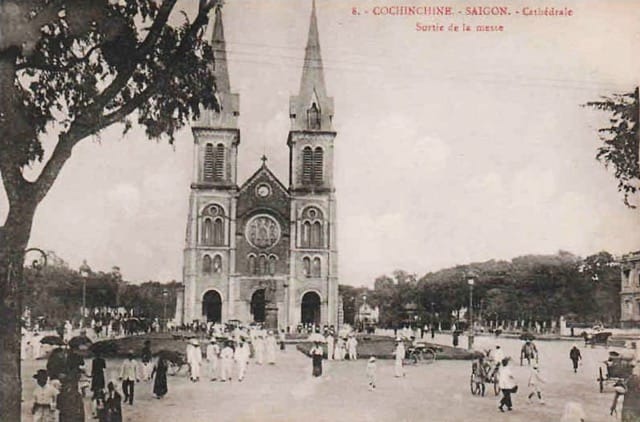
Its construction began in 1863 and was completed by 1880. The cathedral was designed by French architect Jules Bourard, who also designed several other buildings in Vietnam during the colonial era.
The cathedral was constructed using materials imported from France, including red bricks from Marseille and stained glass from Chartres. The cathedral’s interior features intricate details, including stained glass windows, religious statues, and an ornate altar.
Its beautiful architecture, which combines French Gothic and Vietnamese elements, demonstrates the skill and expertise of the craftsmen who built it over a century ago.
During the colonial era, the cathedral was instrumental in promoting Catholicism in Vietnam. The cathedral was a critical aspect of the French invaders’ endeavor to impose their power over the local inhabitants by actively promoting Catholicism.
Its religious services drew both Vietnamese and French worshippers, and it served as a gathering point for Vietnam’s increasing Catholic community.
The Notre Dame Cathedral in Saigon is an important religious and cultural landmark in the city today, despite undergoing extensive renovation work that began in 2017. The project aims to return the cathedral to its original state by repairing damage caused by pollution, weathering, and the passage of time.
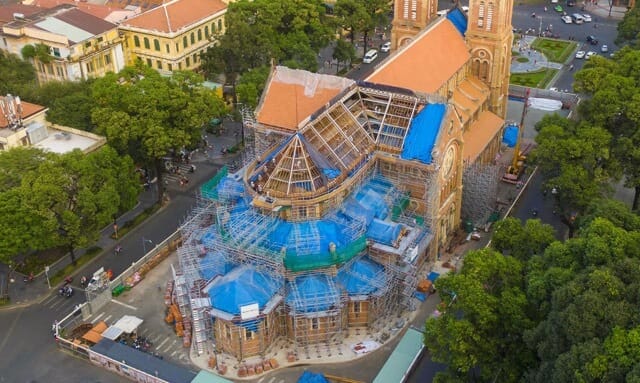
Despite the ongoing renovations, the cathedral’s magnificence and beauty continue to entice people from around the world. It serves as a symbol of the country’s religious and cultural diversity, and remains a beloved destination for visitors to Saigon.
The stained glass windows, holy figures, and meticulous features of the cathedral testify to the eternal nature of faith and spirituality, as well as an insight into Vietnam’s rich history and culture.
Embark on an Exciting Saigon Motorbike Adventure for Foreign Explorers
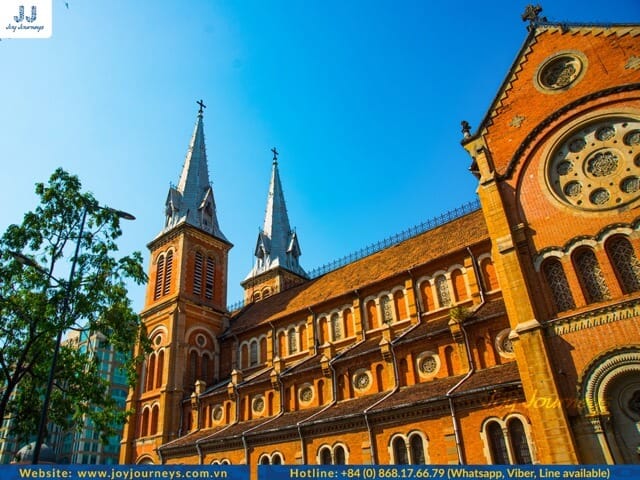
The Artistic Marvels of the Cathedral
The Notre Dame Cathedral in Saigon is a remarkable example of French Gothic architecture infused with Vietnamese design characteristics. The church’s façade is composed of red bricks imported from Marseille, France, and has complex carvings and ornaments such as spires, arches, and saint sculptures.
The 58-meter-tall twin bell towers are topped with iron spires and cross-shaped finials. The rose window over the cathedral’s entrance is a stained glass masterpiece depicting the Virgin Mary surrounded by angels and other sacred characters.
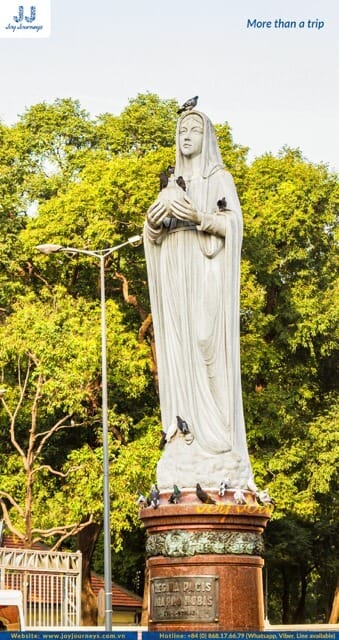
Looking at the building from above, the Notre Dame Cathedral is shaped like a Latin cross. The cathedral’s nave, transept, and apse create the three arms of the cross, while the entryway and twin bell towers form the cross’s base.
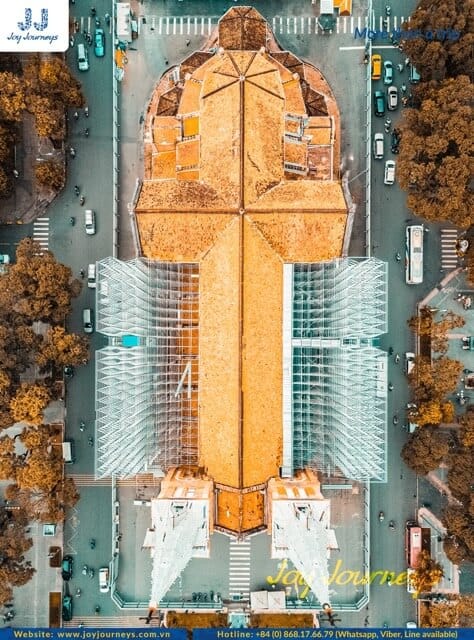
This typical design in Christian architecture is meant to symbolize the cross on which Jesus Christ was crucified. The cathedral’s cross-shaped design adds to its religious significance and symbolism and is one of the numerous aspects distinguishing it as a unique and outstanding architectural masterpiece.
With its towering vaulted ceiling, stained glass windows, and holy figures, the cathedral’s interior is equally magnificent. The nave of the cathedral, the church’s center area, is flanked by rows of columns and arches, which add to the majesty and magnitude of the space.
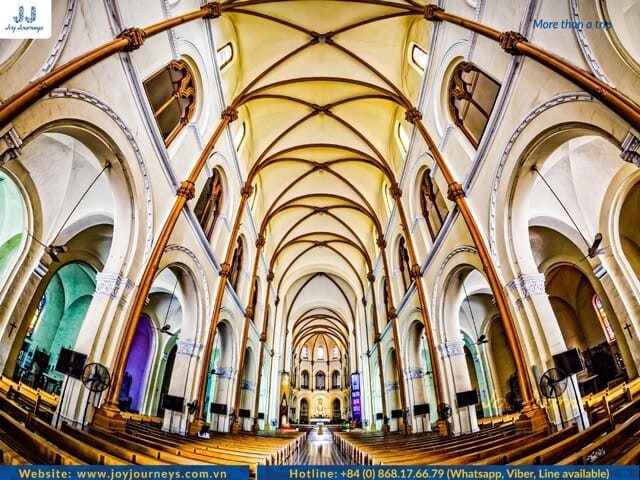
The Carrara marble altar has a statue of the Virgin Mary cradling a child in her arms, and the walls are covered in religious paintings and sculptures.
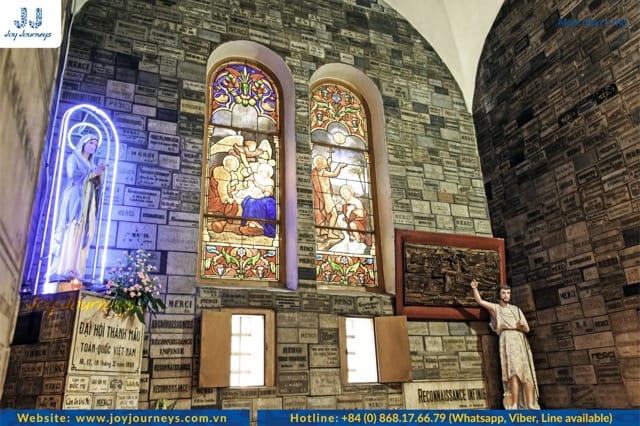
The array of stained glass windows, which create a kaleidoscope of colors and light inside the cathedral, is one of the interior design’s highlights.
A team of French and Vietnamese artists collaborated to construct the windows, which reflect events from the Bible and the history of Catholicism. The cathedral also houses various holy statues, including one of Saint Joseph and one of Sainte-Anne, the Virgin Mary’s mother.
The cathedral’s design includes various Vietnamese features, such as lotus-shaped ornaments and patterns. The red tile roof has dragon-shaped ornamentation, a common symbol in Vietnamese culture.
The combination of French and Vietnamese design features creates a one-of-a-kind and magnificent aesthetic experience, making the Notre Dame Cathedral of Saigon one of Vietnam’s most beautiful and remarkable religious structures.
Explore Saigon’s architectural masterpieces, where beauty and history harmonize in this article.
The attraction that draws tourists here
The Notre Dame Cathedral of Saigon is a must-visit attraction for anyone interested in history, culture, and architecture. While the cathedral’s exterior and interior are the main attractions, there are several other things to see and do during a visit.
The surrounding area, which includes the Saigon Central Post Office and the Reunification Palace, is worth exploring. These structures are also architectural masterpieces that provide an insight into the city’s history.
Gustave Eiffel, the same architect who constructed the Eiffel Tower in Paris, designed the Saigon Central Post Office, an excellent example of French colonial architecture. The Reunification Palace, which served as the presidential residence of South Vietnam during the Vietnam War, is a fascinating example of modernist architecture.
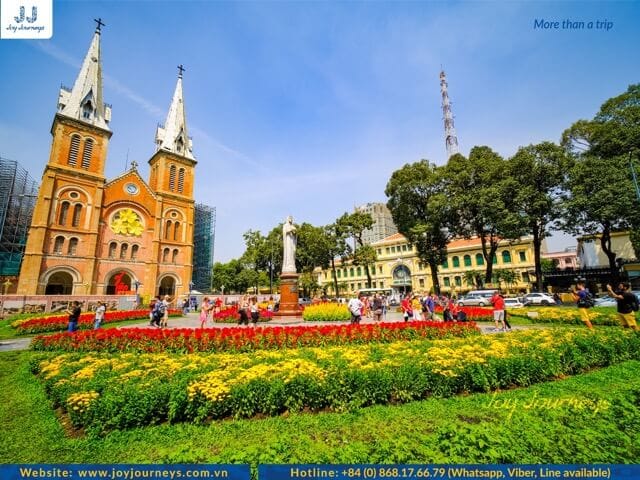
Another thing to see at the Notre Dame Cathedral of Saigon is the collection of religious relics and artifacts. The cathedral is home to several vital artifacts, including a statue of the Virgin Mary that was said to have shed tears in 2005. Visitors can also see a collection of religious paintings and sculptures, which offer insights into the history and culture of Catholicism in Vietnam.
Those interested in music can also listen to the beautiful sounds of the cathedral’s organ. The cathedral’s organ, one of the largest in Vietnam, was built in the early twentieth century by renowned French organ builder Aristide Cavaillé-Coll. The organ is still in use and is used for religious services and other occasions.
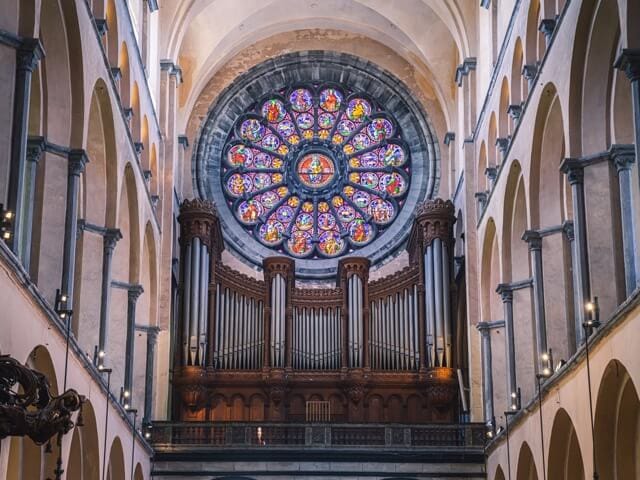
Finally, the Notre Dame Cathedral in Saigon is a beautiful spot to sit and relax. The inside of the cathedral provides a serene environment away from the rush and bustle of the city. Visitors can pause to contemplate, relax, or simply enjoy the beauty of the location.
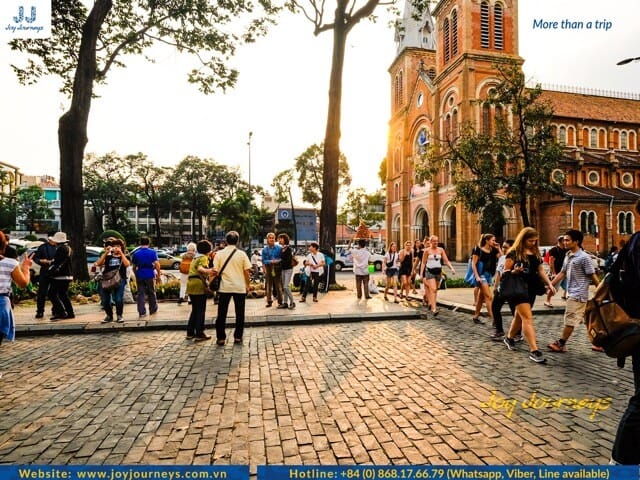
How to Make the Most of Your Visit
Best times to visit: The cathedral is a popular tourist and local destination. Thus it can get packed during peak hours. To avoid crowds, go early in the morning or late in the afternoon. Weekdays are also less congested than weekends.
Getting there: Because the cathedral lies in the middle of the city, it is easily accessible through public transit.
Its address is 1 Cong Xa Paris, Ben Nghe, District 1, Ho Chi Minh City. To get to the cathedral, visitors can take a bus, taxi, or motorcycle taxi.
The bus stop closest to the hotel is the Notre Dame Cathedral stop, which is served by various bus lines.
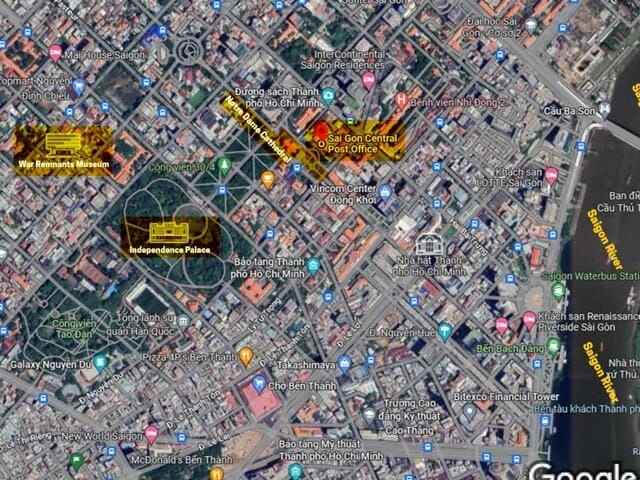
Etiquette and cultural considerations: When visiting the cathedral, visitors should dress modestly, covering their shoulders and knees. Before entering the cathedral, they should also take off their hats and shoes.
Visitors should be mindful of the religious nature of the space and refrain from photographing religious services. When inside the cathedral, it is also vital to be aware of the noise level and to speak quietly.
Discover the captivating history and activities at Cu Chi Tunnels.
Conclusion
In conclusion, the Notre Dame Cathedral of Saigon is a unique and spectacular attraction that elegantly combines French and Vietnamese design elements. Its ageless beauty and rich history make it a must-see site in Ho Chi Minh City, as well as a tribute to faith and spirituality’s eternal character.
During their visit, visitors can enjoy various activities, such as viewing the cathedral’s relics and listening to its music, as well as discovering local dining and shopping opportunities. To make the most of their stay, travelers should avoid busy hours and observe cultural etiquette.


Related Posts
Saigon’s “Flower Market Replica”: Where To Find Them
Ho Chi Minh City’s floral charm is not limited to its bustling wholesale markets. Imagine wandering through a place where vibrant petals, fragrant blooms, and the spirit of traditional Vietnamese markets come alive—without the overwhelming crowds. A flower market replica captures that magic, blending the beauty of fresh flowers with the charm of a curated, […]
Is it Safe to Travel to Vietnam Right Now? A Complete 2025 Guide
Vietnam has emerged as one of Southeast Asia’s most captivating destinations, drawing millions of visitors annually with its rich culture, stunning landscapes, and incredible cuisine. However, many travelers still ask: Is it safe to travel to Vietnam right now? This comprehensive guide provides you with everything you need to know about Vietnam travel safety in […]
Ho Chi Minh Cu Chi Tunnels Tour: The Ultimate Guide
The Cu Chi Tunnels stand as one of Vietnam’s most remarkable historical sites, offering visitors a profound glimpse into the ingenuity and resilience displayed during the Vietnam War. For travelers, a Ho Chi Minh Cu Chi tunnels tour represents an essential experience that combines education, adventure, and deep cultural understanding. This comprehensive guide will help […]